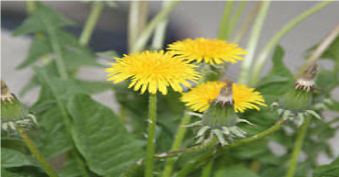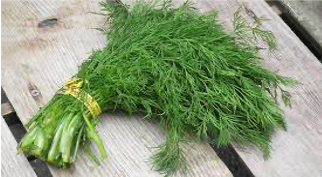Today’s herb / plant is Dandelion
 Dandelion are a family of flowering plants that grow in many parts of the world.
Dandelion are a family of flowering plants that grow in many parts of the world.
Taraxacum officinale is the most common species, a large genus of flowering plants in the family Asteraceae.
You may be most familiar with dandelion as a stubborn weed that never seems to leave your lawn or garden.
However, in traditional herbal medicine practices, dandelion is revered for their wide array of medicinal properties.
For centuries, they’ve been used to treat a myriad of physical ailments, including cancer, acne, liver disease and digestive disorders.
Scientific research is limited but studies suggest that dandelion has the following benefits:
- they are highly nutritious – the whole plant is edible Dandelion greens can be eaten cooked or raw and serve as an excellent source of vitamins A, C and K – they also contain vitamin E, folate and small amounts of other B vitamins
- contains high level of anti-oxidants: beta carotene and polyphenols; so, they can contribute to protection against cellular damage and oxidative stress
- can help reduce inflammation due to high anti-oxidants
- may help reduce blood sugar due to the two bioactive compounds chicoric and chlorogenic acid found in dandelion
- some of the bioactive compounds in dandelion may lower cholesterol, which may decrease the risk of heart disease
- traditional herbal medicine use dandelion for their diuretic effect based on the belief that this can detoxify certain organs
- dandelion can have a protective effect on liver tissue in the presence of toxic substances and stress
- some limited research theorizes that dandelion’s ability to improve carbohydrate metabolism and reduce fat absorption may lead to weight loss – however, this notion has yet to be scientifically proven
- dandelion root extract can have the capacity to dramatically slow the growth of cancer cells in liver, colon and pancreatic tissue
- traditional herbal medicine use dandelion to treat constipation and other symptoms of impaired digestion
Dandelion have low toxicity and are likely safe for most people, especially when consumed as a food in its whole form.
Dandelion can cause allergic reactions, mostly in people with allergies to related plants like ragweed. Contact dermatitis can also occur in people with sensitive skin.
Dandelion leaves, stems and flowers are often consumed in their natural state and can be eaten cooked or raw. The root is usually dried, ground and consumed as a tea or coffee substitute.
Dandelion is also available in supplemental forms, such as capsules, extracts and tinctures.
Today’s spice is Dill
 Dill is a herb in the celery Apiaceae family, and its leaves and seeds are widely used as a spice.
Dill is a herb in the celery Apiaceae family, and its leaves and seeds are widely used as a spice.
Also called dill weed, the plant has slender stems with alternating soft leaves and brown, flat, oval seeds. While the leaves have a sweet, grassy flavour, dill seeds are more aromatic, with a slight citrus flavour that’s similar to caraway seeds.
As herb and spice, dill is commonly used to elevate the flavour of various dishes. It’s often paired with salmon, potatoes, and yogurt-based sauces.
In addition to culinary uses, dill is rich in several nutrients and has traditionally been used to treat various ailments, including digestive issues, colic in infants, and bad breath
Scientific research is limited but studies suggest that dill has the following benefits:
- rich in compounds with antioxidants such as
- flavonoids – associated with a reduced risk of heart disease, stroke, and some forms of cancer and good for brain health, may lower blood pressure, most likely due to its antioxidant and diuretic properties
- terpenoids – these compounds are found in essential oils and may protect against liver, heart, kidney, and brain diseases
- tannins – responsible for bitterness in many plant foods, tannins have been shown to have potent antioxidant properties, as well as antimicrobial effects
- may benefit heart health – due to potent anti-oxidant and anti-inflammatory properties
- high in antioxidants so has anti-inflammatory effects on the body
- may have anti-cancer properties due to being high in monoterpenes, particularly d-limonene – more research needed to confirm though
- can benefit bone health – as dill contains calcium, magnesium, and phosphorus
Dill is generally safe for consumption. However, in rare cases it has been shown to cause allergic reactions, vomiting and diarrhoea.
It is recommended to avoid dill pills during pregnancy and breast-feeding.
If in doubt, as ever, please seek advice from a healthcare or medical professional.
Dill is a flavourful ingredient that’s easy to add to your food to flavour meat, soups, breads and salads.
Dill seeds can be used whole or crushed added to food, but they can also be used to make dill pickles.
